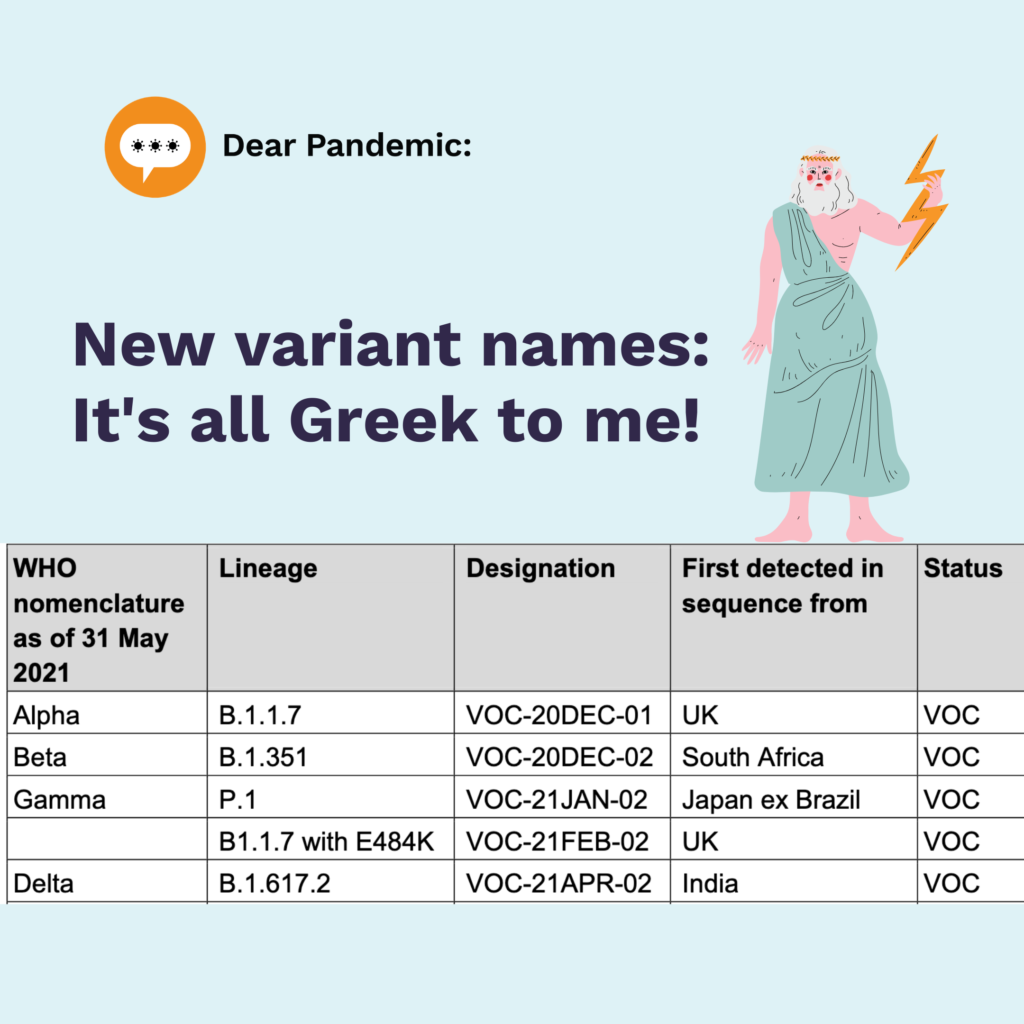Let’s face it: B.1.1.7 and B.1.351 don’t easily roll off the tongue.
While naming variants after the place they were first identified is common in virology, during the pandemic there has been concern about stigmatizing particular countries when using these names in public discussions.
The WHO has adopted a new Greek alphabet naming system to try to balance these issues.
The “PANGO” nomenclature (such as B.1.1.7) will still be used by scientists, as this tool categorizes variants by the phylogenetic lineages they are most closely related to.
❓What is a “Variant of Interest,” or VOI?
➡️ Variants with mutations that are *suspected* to be important for transmission, severity, or immune evasion.
As the name suggests, these are variants we are keeping an eye on but don’t yet have strong evidence that the changes are important.
❓What is a “Variant of Concern,” or VOC?
➡️ A VOC is a VOI that has moved from merely suspicious to having firmer evidence of increased transmissibility, severity, or immune evasion.
⬇️ See below for a cheat sheet on the new names of the VOCs—and see this link for a more complete list including VOIs.
⚠️ So just HOW concerning are these “Variants of Concern”?
Ƭ̵̬̊ Watch this space for an update on “delta” (the variant formerly known as Indian/B.167 which has become dominant in the U.K).
💉 In the meantime, it remains true that vaccines (especially 2 doses) remain highly effective against all known VOCs.
For a summary, see our recent post on “scariants or variants?”
⁉️ So, will the Greek letter naming system be easier or just as confusing? What will happen when we have both an “epsilon” and an “upsilon”? Share your thoughts and reactions in the comments…
Love,
Those Nerdy Girls



